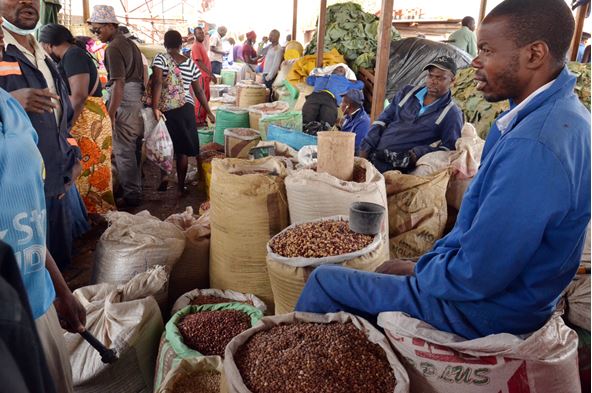Bringing back dignity to African farming systems through mass markets
Dignity is a fundamental human right. Depending on circumstances, dignity can be about choice. For farmers, it is about choosing what to grow, when, how to grow, how much and where to sell. For consumers, it is about choosing what to consume and where to buy among other considerations. In agricultural-based countries with diverse natural resources, farmers should choose what to grow that enables them to buy their own inputs rather than depend on government hand outs or donors. Depending on food aid or cash transfers is one major way African communities continue to lose their dignity. There is nothing dignified about receiving free inputs and free food. Those of us who grew up farming know that there was nothing dignified about digging holes to plant maize when others were ploughing with cattle or other forms of dignified draught power.

Lost of dignity due to poor policies
African farming has lost its dignity over the past few decades due to poor policies. Attempts to blame climate change are far-fetched. Smallholder farming can be given fancy names like Pfumvudza or Intwasa but as long as it is associated with digging holes and free inputs, there is no dignity in it. Farmers do not just want to survive on agriculture but want growth pathways through which they can build legacies. A dignified farmer is one who is able to buy his/her own inputs.
Conditions for that to happen can be cultivated through setting up viable market systems. The absence of viable market systems has stolen the dignity of farmers. This is in spite of the fact that many ministers and business executives were educated through farming when markets paid well. Now that they are in government and corporates, such executives cannot see the value of bringing dignity to a profession that transformed their lives. African policy makers and financiers have not invested in understanding the type of investment needed by smallholder farmers. They always think it is all about inputs yet farmers have own cattle and other inputs. If food security takes 10% of what farmers grow, what about the 90% which should be provide income?
The dignity of African smallholder farmers is also stripped away through several layers of economic injustice. For instance, instead of growing export crops, presidents, ministers and other elites tend to compete with poor farmers in producing maize and other crops from which poor people can at least get some income. Agriculture and food policies also continue to undermine African agriculture and food systems. For instance, by direction national resources to a few value chains such as maize, wheat and a few others, policy makers overlook several commodities that are part of local food diversity. Such commodities include tubers, indigenous chickens, indigenous fruits and many others. The few commodities that receive excessive support go to markets that are controlled by government and are also a cash cow for powerful people who compete with smallholder farmers.
The enduring value of mass markets
Besides embracing food diversity, African mass markets are adept at bringing diversity to farmers than formal markets that are controlled by the elite. In mass markets, commodities that are considered marginal get some value and can compete with any commodity. The same does not happen in formal markets like supermarkets or national grain boards. By participating in the marketing process, farmers have choice to sell to different buyers rather than being dictated to by a government marketing institution. In mass markets, farmers can also learn from other farmers in ways that foster knowledge co-creation which is another powerful source of dignity.
However, the main challenge lack of recognition, support and protection of mass market in the fiscus despite these markets being a major driver of employment directly and indirectly. Many actors such as transporters also benefit from the market which means the market fuels the growth of the transport sector. Public transport plays a key role in moving agricultural commodities in most African countries and this means long distance buses are part of the inclusive economy linked to markets.
Investing in agriculture infrastructure like rural road rehabilitation could assist in bringing dignity to African agriculture. Although prices of commodities are critical, big external issues are poor roads. Support should no longer be about providing inputs or extension knowledge but developing supply corridors from farm to markets. Government can control transport costs by putting good roads. In marginalized communities, farmers appreciate when middlemen come to buy their commodities using bad roads. In such cases the farmers do not even worry about low prices as long as somebody shows up to buy their commodities. Unfortunately, when policy makers look at mass markets, they only see vendors. They do not see mass markets as institutions where youth and women are earning a living. The best way of giving dignity to these markets is through recognition, support and protection. Mass markets should be recognized as critical institutions that have been pursuing indigenous growth pathways on their own for decades without policy support.
charles@knowledgetransafrica.com / charles@emkambo.co.zw /info@knowledgetransafrica.com
Website: www.emkambo.co.zw / www.knowledgetransafrica.com
Mobile: 0772 137 717/ 0774 430 309/0712737430
